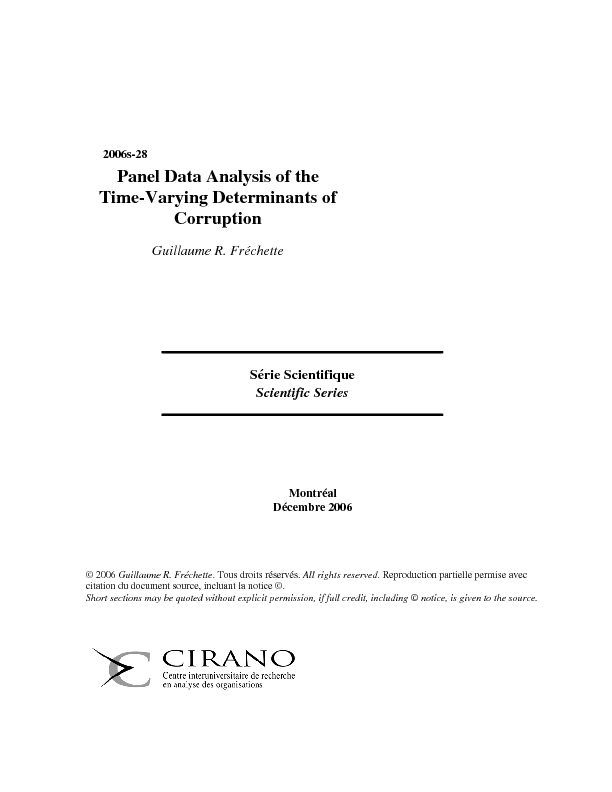Panel Data Analysis of the Time-Varying Determinants of Corruption
There is a long history of models attempting to identify the causes of corruption, yet empirical analysis is complicated. Not only is data difficult to obtain and often available only for few countries and a limited number of years, but such estimation involves inherent complexities. This paper focuses on the use of panel data techniques to better identify factors that affect bureaucratic corruption. Furthermore, this paper identifies an endogeneity problem which arises in the analysis of the causes of corruption, and a new instrumental variable is proposed to solve it. To help in this endeavor, a data set is employed which provides information for as many as 135 countries over a span of sixteen years. Results show that neglecting the endogeneity problem leads to severely biased results. Using panel data techniques reveals that the availability of rents is a crucial determinant of corruption and that previous research may have underestimated the economic significance of rents on corruption. Furthermore, corruption is shown to be procyclical.
[ - ]




